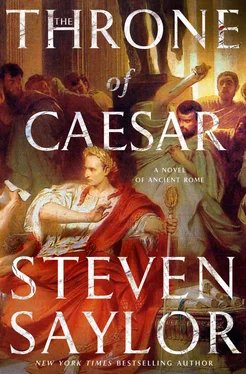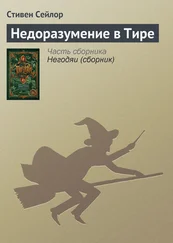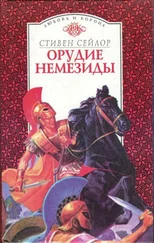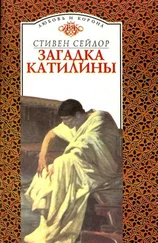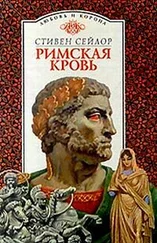Стивен Сейлор - The Throne of Caesar
Здесь есть возможность читать онлайн «Стивен Сейлор - The Throne of Caesar» весь текст электронной книги совершенно бесплатно (целиком полную версию без сокращений). В некоторых случаях можно слушать аудио, скачать через торрент в формате fb2 и присутствует краткое содержание. Год выпуска: 2018, Издательство: St. Martin's Press, Жанр: Исторический детектив, на английском языке. Описание произведения, (предисловие) а так же отзывы посетителей доступны на портале библиотеки ЛибКат.
- Название:The Throne of Caesar
- Автор:
- Издательство:St. Martin's Press
- Жанр:
- Год:2018
- ISBN:нет данных
- Рейтинг книги:5 / 5. Голосов: 1
-
Избранное:Добавить в избранное
- Отзывы:
-
Ваша оценка:
- 100
- 1
- 2
- 3
- 4
- 5
The Throne of Caesar: краткое содержание, описание и аннотация
Предлагаем к чтению аннотацию, описание, краткое содержание или предисловие (зависит от того, что написал сам автор книги «The Throne of Caesar»). Если вы не нашли необходимую информацию о книге — напишите в комментариях, мы постараемся отыскать её.
The Throne of Caesar — читать онлайн бесплатно полную книгу (весь текст) целиком
Ниже представлен текст книги, разбитый по страницам. Система сохранения места последней прочитанной страницы, позволяет с удобством читать онлайн бесплатно книгу «The Throne of Caesar», без необходимости каждый раз заново искать на чём Вы остановились. Поставьте закладку, и сможете в любой момент перейти на страницу, на которой закончили чтение.
Интервал:
Закладка:
I expected the slave to return and conduct me to his master, but instead another figure appeared. He was a jowly, scowling middle-aged man with a self-important look, wearing an expensive-looking orange tunic—surely a citizen, not a slave. Had I not known better, I would have thought he was the master of the house—which in fact he was.
“You’re looking for the other one,” he said brusquely.
“I beg your pardon?”
“Oh, you’re not the first to arrive at this door, making the same mistake. When the slave mentioned ‘tavern’ and ‘poem’ in the same sentence, I knew. It’s the other one you want, not me.”
“I see. But I was told that this was the house of Cinna.”
“So it is. Lucius Cornelius Cinna, not Gaius Helvius Cinna. Cinna the praetor, not Cinna the tribune. The cognomen is the same, but we are quite different, I assure you. Quite different.”
“How so?”
He snorted. “I’m not a poet, for one thing. Nor am I a drunkard. And you’ll never see me playing lapdog to the Dictator.” His scowl deepened.
“I don’t suppose you could tell me where the other Cinna lives?”
He grunted. “If it will get you off my doorstep, yes.” He gave me directions.
“Thank you, praetor.”
“On your way, citizen.” He slammed the door.
The house was not far. Even at a glance, it appeared more suitable for the Cinna I knew. The steps were swept, the walls freshly coated with a pale green wash, and the door of highly polished oak was adorned with a large bronze medallion that depicted Orpheus playing pipes for an audience of animals .
The slave who answered looked more appropriate, too—a well-groomed, cheerful young man who laughed when I asked if his master was receiving visitors. “At this time of the morning? Well, I suppose if you’re very, very important…” He saw the look on my face and laughed again. “I’m only joking. Whom shall I say is calling?”
“Tell him that his friend from the Salacious Tavern has some questions for him.”
The young slave bowed—mockingly, I wondered?—and hurried off. After a short wait, he returned and led us through the house. The furnishings, as I would have expected, were elegant, and the various paintings and sculptures quite refined. From our conversations I had gathered that Cinna’s father was fabulously wealthy, having been one of the Roman officers who reconquered Asia from King Mithridates. Among the booty was the famous poet Parthenius of Nicaea, who had tutored Cinna and greatly influenced both the style and substance of Cinna’s poetry.
We arrived at a room that opened onto a peristyle with a garden. The green space was decorated with a fountain populated by marble fauns and dryads. The room was painted to resemble a wooded glade with wildflowers all around. The only furnishings were a dozen or so chairs, all different but each exquisitely crafted, made of exotic woods with inlays of abalone, silver, lapis, onyx, and other precious substances. Two of the chairs were occupied. Cinna and his guest rose to their feet as the slave led Davus and me across the garden.
“Gordianus!” said Cinna, smiling. “I thought it must be you. I hoped it was. And it is.”
“You already have company,” I said.
“A citizen who’s come to ask a favor of a tribune. But our business is done.” He said a few words of parting and the visitor left, led out by the slave who had led me in. Cinna sat and gestured that Davus and I should do likewise.
“Not only up, but already conducting business,” I said. “I thought you might still be in bed.”
“By Hercules, no! It’s hard work being a tribune. Public service is no job for laggards. Let no one tell you otherwise. The fellow who just left wants me to petition the Dictator for the return of a pigsty that was seized by soldiers during the war and then auctioned as public property. Oh, the endless litigation and mitigation required to effect such a miracle!” He laughed.
“You almost put me off becoming a senator,” I said. “What if Caesar gets it into his head to make me a tribune, or whatever?”
“All appointments have already been filled for the foreseeable future, or until Caesar returns from Parthia—whichever happens first. So you needn’t worry on that count. Unless, of course—ah, but that would never happen.”
I raised an eyebrow.
“Oh, no, the Finder with his penetrating gaze compels me to speak!” He laughed. “Well, I suppose I’ll tell you. It’s not absolutely certain yet, but…”
“From your repeated hesitation, I assume it must be something quite important.”
“So it is. But will I attract the Evil Eye if I boast prematurely? Ah well, your son will probably tell you if I don’t. While Caesar himself has not yet confirmed it, I’ve been told that he wants me to come with him to Parthia.”
“As an officer?”
Cinna shook his head. “My father was the military man, not me. No, Caesar will take me along as an observer.”
“Observing what?”
“The Dictator’s brilliant campaign, of course. It’s because he admires my poetry, don’t you see? While he fully intends to write up his own account of the war, as he’s done so successfully for his previous conquests, he wishes that this campaign be commemorated with something more in the vein of a heroic epic. Something Homeric, if you will.”
“I’m not sure I would call the Zmyrna a heroic epic.…”
“Because it isn’t. But Caesar trusts that I can write in any form I turn my hand to. But anyway, the only reason I mentioned that I may be leaving is that someone will have to be appointed to finish my term as tribune. Caesar will announce his choice on the Ides, I presume, and alas, it won’t be you, because he would hardly make you a senator and a tribune in one day, would he? Cicero and his crowd might drop dead of heart attacks on the spot. Well, I’ve digressed enough. I don’t suppose you’ve had any new thoughts about that warning?”
“Warning?”
“You know, I told you about it—the word ‘beware’ in Greek scratched in the sand before my doorstep.”
I sighed. “Apologies, Cinna, but I’ve hardly given it a thought. I’ve been rather busy the last few days, with … one thing and another.”
“As have I. Packing for Parthia is no small task! But never mind. I’d almost forgotten that word in the sand myself. Seeing you reminded me. But wait a moment. By what right do you state any opinion whatsoever regarding the Zmyrna ? You haven’t even read it. Or … have you?”
Once again he had exercised the power men attributed to me, perceiving the purpose of my visit before I could state it. He had only to glance at my face to see that he was right. Davus gave me a sidelong look, amused to see the table turned on his father-in-law.
“You have read it, haven’t you? Ah, well, then, my existence here in Rome is complete and I can happily go traipsing off to Parthia, for at long last Gordianus the Finder has read the Zmyrna. ”
“Almost,” I said.
“How can one almost read a poem?”
“I mean that I’ve read almost all of it, but not quite. Meto bought me a copy yesterday, as a gift in anticipation of my birthday. We read it aloud to each other last night. But the copy was defective. The end is missing.”
“Oh, Gordianus! How terrible for you. To be left in such suspense. However did you manage to sleep?” He spoke sincerely, without a shred of irony.
“To be honest, my sleep was uneasy. The poem put some … strange images … and strange ideas … in my head.”
“My verses have been known to cast a spell. Naevius said it well: ‘Women may have witchcraft, but we men have poetry.’ Where did the poem break off? ”
Читать дальшеИнтервал:
Закладка:
Похожие книги на «The Throne of Caesar»
Представляем Вашему вниманию похожие книги на «The Throne of Caesar» списком для выбора. Мы отобрали схожую по названию и смыслу литературу в надежде предоставить читателям больше вариантов отыскать новые, интересные, ещё непрочитанные произведения.
Обсуждение, отзывы о книге «The Throne of Caesar» и просто собственные мнения читателей. Оставьте ваши комментарии, напишите, что Вы думаете о произведении, его смысле или главных героях. Укажите что конкретно понравилось, а что нет, и почему Вы так считаете.
